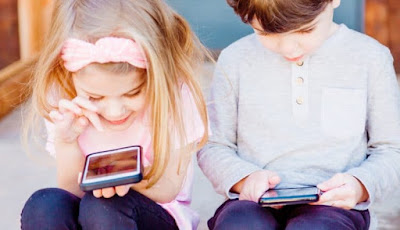 |
| All you need to know about Messenger Kids app |
Facebook Messenger was launched in the United States, Canada and Peru just before Messenger Kids was officially announced in more than 70 new countries.
Availability of the application in new countries is designed to help more children stay at home due to the Corona virus epidemic and children who need to communicate more with their peers through a special application.
But what is Messenger, how is it different from the main application and how is it different from other communication apps?
That's all you need to know about Messenger Kids app.
The app was launched in 2017 and is a free video chat and messaging app specially designed for children. Children under the age of 13 can install the application on their smartphones or tablets, and parents can use their correspondence. The account monitors his activity.
The app provides many features for children such as stickers, GIFs, emoji and drawing tools, while the video chat feature includes filters, interactions and sound effects that attract young children.
Using the app, parents can create and manage children's contact lists on their own devices. There are no purchases or ads in the Messenger Kids app.
What are the new updates for Messenger Kids:
The latest updates that Facebook adds include the ability of parents to monitor the requests of their child's friends, rather than managing each request on their behalf, so parents can take some responsibility for their use. Use by their children.
However, parents still receive notifications about their new friends through Messenger and have the option to override these requests.
Additionally, a feature that enables accredited adults (such as teachers, coaches, and parents) to have group conversations, including their children and friends, while they are in class or out of school.
Parents can also control the child’s name and profile photo so friends in the U.S., Canada, and Latin America can see it.
To install and use the app:
All that parents have to do is allow the child to use the app, that is, install the app on a smartphone or tablet, then use the parents' login information on Facebook to verify the Messenger Kids account on behalf of the child.
After that, parents can manage and assign the child's account using the parental control dashboard in their Facebook app. However, creating a Messenger Kids account does not mean that the child has a Facebook account. When a child arrives, their Messenger accounts are not automatically updated to regular OpenVPN accounts. 13 years
The app is free for Android users on Google Play and for iPhone and Android users in the App Store.
